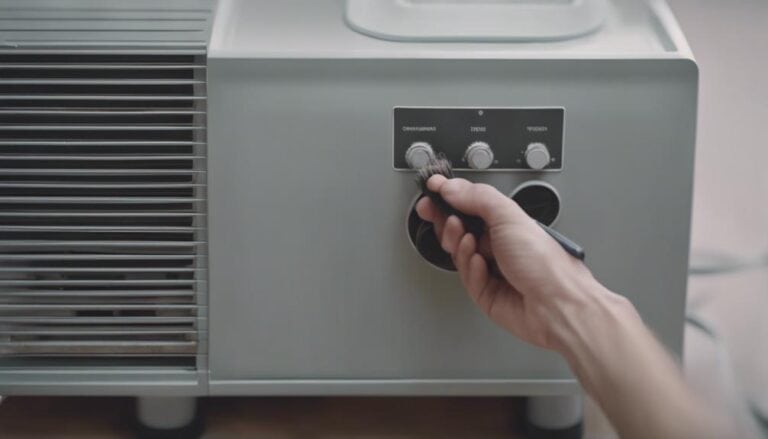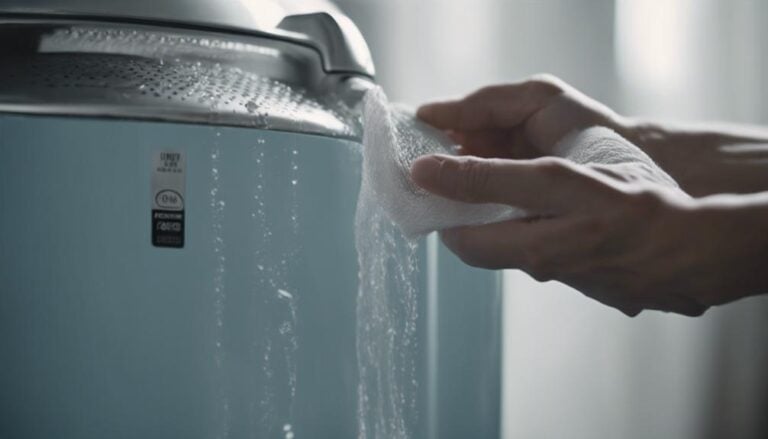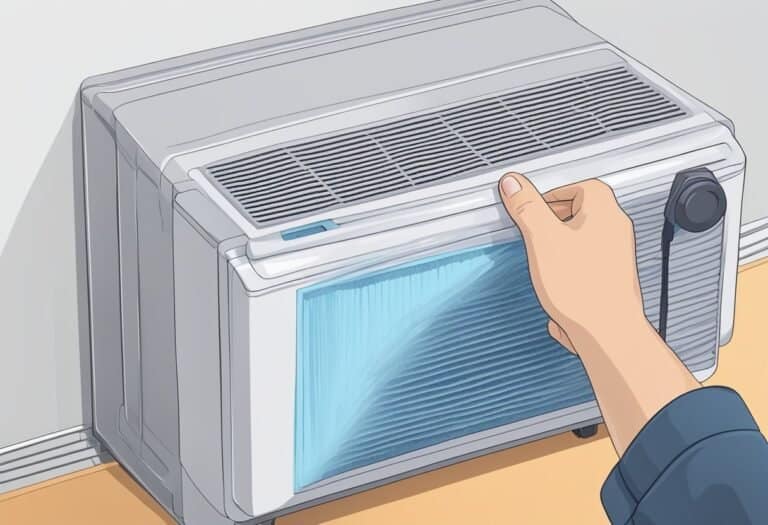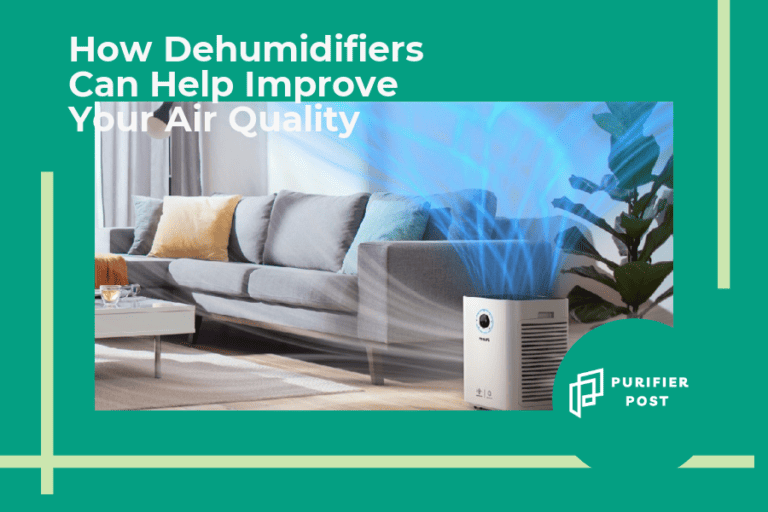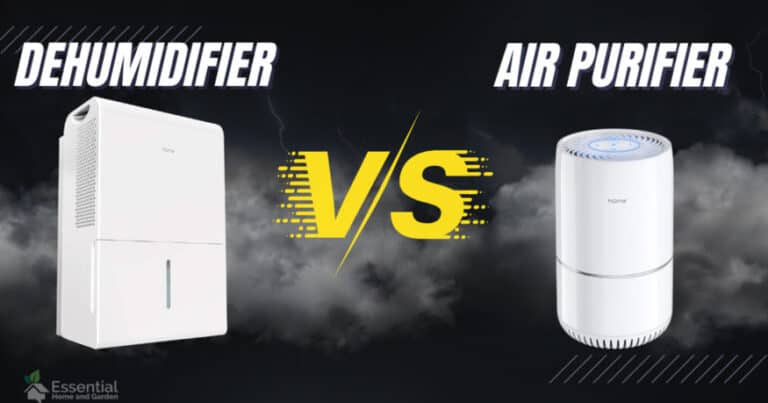Does a Dehumidifier Clean the Air? Comparing Dehumidifiers and Air Purifiers
Are you wondering if a dehumidifier can really clean the air in your home?
In this article, we will compare dehumidifiers and air purifiers to help you understand their roles in improving indoor air quality.
We will explore the effectiveness of dehumidifiers in removing airborne contaminants and compare their performance to air purifiers.
By the end, you will have the information you need to make an informed decision on whether to choose a dehumidifier or an air purifier for cleaner air.
Key Takeaways
- Poor indoor air quality can lead to various health issues.
- Dehumidifiers help reduce excess moisture in the air and prevent the growth of mold and mildew.
- Air purifiers remove airborne particles and pollutants, improving respiratory health.
- Using both dehumidifiers and air purifiers can provide comprehensive indoor air quality improvement.
The Role of Dehumidifiers in Improving Air Quality
Dehumidifiers play a crucial role in improving air quality by reducing excess moisture in your home. Excess moisture in the air can lead to the growth of mold, mildew, and dust mites, which can negatively impact indoor air quality. By removing moisture from the air, dehumidifiers help to create a healthier environment for you and your family.
One of the main ways that dehumidifiers improve air quality is by reducing the presence of allergens. Dust mites and mold thrive in humid environments, so by lowering the moisture levels, dehumidifiers make it less hospitable for these allergens to survive. This can be especially beneficial for people with asthma or allergies, as it helps to reduce triggers that can cause flare-ups.
While dehumidifiers don’t directly clean the air like an air purifier does, they do help to create a cleaner environment by reducing the conditions that allow allergens and pollutants to thrive. Some dehumidifiers also have built-in air filters that can help to capture dust, pollen, and other particles in the air, further improving indoor air quality.

Understanding the Benefits of Air Purifiers for Indoor Air Quality
Discover the many benefits of air purifiers for improving the indoor air quality in your home.
- Air purifiers effectively remove air pollutants, such as dust, pollen, pet dander, and mold spores, from the air.
- By using an air filter, air purifiers can capture and trap harmful particles, preventing them from circulating in your living space.
- Air purifiers with HEPA filters are especially efficient in removing 99.97% of airborne particles as small as 0.3 microns.
- Improved indoor air quality can lead to better respiratory health and reduce the risk of allergies and asthma attacks.
Air purifiers play a crucial role in creating a clean and healthy indoor environment. While dehumidifiers primarily focus on reducing humidity levels, air purifiers are designed specifically to remove harmful pollutants from the air. They work by drawing in air through a series of filters, capturing and trapping particles, and releasing clean air back into the room.
With the help of HEPA filters, air purifiers can effectively remove microscopic pollutants that may cause respiratory issues or trigger allergies. By investing in an air purifier, you can breathe easier and enjoy a healthier home environment.
Examining the Effectiveness of Dehumidifiers in Removing Airborne Contaminants
Improve the air quality in your home by considering the effectiveness of dehumidifiers in removing airborne contaminants. While air purifiers are commonly used to remove pollutants from the air, dehumidifiers also play an important role in maintaining a clean and healthy indoor environment. By controlling the humidity level, dehumidifiers can effectively reduce the presence of airborne contaminants such as dust mites and mold spores.
To emphasize the effectiveness of dehumidifiers in removing airborne contaminants, let’s compare them to air purifiers in a table:
| Dehumidifiers | Air Purifiers | |
|---|---|---|
| Function | Control humidity level | Remove airborne pollutants |
| Target Contaminants | Dust mites, mold spores | Allergens, smoke, pet dander |
| Filtration System | Not applicable | HEPA or other air filtration systems |
| Impact on Respiratory Health | Reduces triggers for respiratory conditions | Eliminates respiratory irritants |
While dehumidifiers do not have a specific air filtration system like HEPA filters in air purifiers, they can still contribute to better air quality by reducing the humidity level. This, in turn, helps to prevent the growth of mold and dust mites, which are common triggers for respiratory conditions such as asthma and allergies.
Therefore, if you are looking to improve your indoor air quality, it is important to consider both dehumidifiers and air purifiers. While air purifiers are effective in removing a wide range of airborne pollutants, dehumidifiers can complement their efforts by controlling the humidity level and reducing specific contaminants like dust mites. Ultimately, a combination of both devices can provide the best results in ensuring clean and healthy air in your home.
Comparing the Performance of Air Purifiers and Dehumidifiers in Cleaning the Air
When it comes to cleaning the air, air purifiers and dehumidifiers work in different ways but can both be effective in improving indoor air quality. Here are some key points to consider when comparing the performance of air purifiers and dehumidifiers in cleaning the air:
- Air Purifiers: Air purifiers are designed to remove contaminants such as dust, pollen, pet dander, and mold spores from the air. They use filters or other technologies like UV light or ionization to capture or neutralize these particles. Air purifiers are particularly effective in removing airborne allergens and improving overall indoor air quality.
- Dehumidifiers: Dehumidifiers, on the other hand, are specifically designed to reduce the humidity levels in the air. They extract excess moisture from the environment, which can help prevent the growth of mold, mildew, and other allergens. While dehumidifiers don’t directly remove airborne particles, by reducing moisture levels, they create an environment that’s less favorable for the growth of these contaminants.
- Combined Approach: In some cases, using both an air purifier and a dehumidifier together can provide even better results. By reducing humidity levels with a dehumidifier, you create a less hospitable environment for allergens, while the air purifier can help capture and remove any remaining airborne particles.
- Consider Your Needs: When deciding between an air purifier and a dehumidifier, consider your specific needs and the air quality issues you’re dealing with. If you have concerns about allergens or airborne particles, an air purifier may be the better choice. If you’re dealing with high humidity levels and mold growth, a dehumidifier could be more beneficial.
Choosing the Right Appliance: Factors to Consider When Deciding Between an Air Purifier and a Dehumidifier
Consider your specific needs and preferences when choosing between an air purifier and a dehumidifier. Both appliances serve different purposes and address different issues related to indoor air quality.
If you suffer from allergies or have respiratory issues, an air purifier may be the better choice for you. Air purifiers are designed to remove contaminants from the air, such as dust, pollen, pet dander, and mold spores. They work by pulling in the air and passing it through a filter, which traps these particles and prevents them from circulating in your home. This can help improve the overall air quality and reduce allergy symptoms.
On the other hand, if you live in a humid environment or have issues with excess moisture in your home, a dehumidifier might be more suitable. Dehumidifiers are specifically designed to remove moisture from the air, which can help prevent the growth of mold and mildew. Excess moisture can’t only cause damage to your home but also contribute to poor indoor air quality. By reducing the humidity levels, a dehumidifier can create a more comfortable and healthier living environment.
Ultimately, the decision between an air purifier and a dehumidifier depends on your specific needs and the issues you’re trying to address. If you have both allergy and moisture concerns, you may need to consider using both appliances to ensure optimal indoor air quality.
Conclusion
In conclusion, while dehumidifiers can help improve air quality by reducing moisture levels, they aren’t designed to specifically clean the air from airborne contaminants.
On the other hand, air purifiers are specifically designed to remove pollutants and improve indoor air quality.
When deciding between the two appliances, it’s important to consider your specific needs and the level of contaminants present in your environment.

